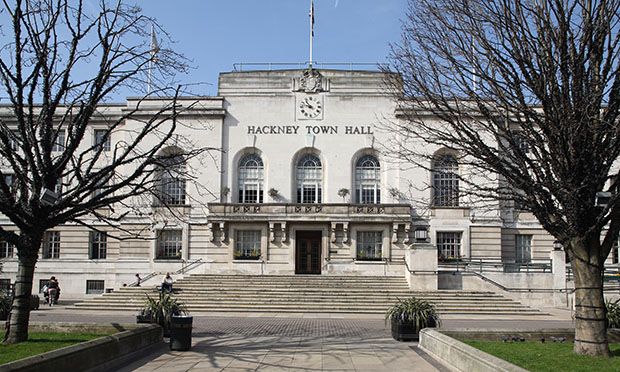Town Hall gears up to provide affordable internet to social housing

Hackney Town Hall.
Hackney Council has taken the “first steps” of its plan to improve digital connectivity across the borough, with the ultimate aim to provide affordable gigabytes to all of its social housing.
Local residents have historically been on the wrong side of the digital divide, with a 2012 council study showing that one in four had never used the internet in their lives – a higher number than any London borough.
Now the Town Hall is to start delivering on a Labour manifesto commitment to push the market to provide Hackney with fast and consistent internet connectivity.
Mayor Philip Glanville said: “We have a unique opportunity in Hackney of being able to harness our own digital assets and estate for the public good.
“The council has a significant place-shaping role, working in partnership with the commercial sector and other public sector partners to deliver a thriving and competitive market for digital connectivity in the borough that will meet residents’ and businesses’ needs now and in the future.
“Cabinet is being asked to approve only the first steps in this journey, which will require ongoing engagement with residents and other stakeholders before individual schemes or projects go forward.”
As part of its aim to enable social housing tenants to benefit from the plans, the Town Hall is “exploring” ways to make it easier for digital suppliers to work on their property.
It is consulting with registered social landlords, opening up its fibre optic ducts free of charge or at low cost to suppliers, and throwing its doors open to all suppliers on a non-exclusive basis.
Also being looked at are ways to deliver free or affordable connectivity to the borough’s markets, temporary accommodation hostels, and properties available for start-ups.
Since 2010, Hackney has experienced a 40 per cent increase in business growth, particularly in the technology, hospitality and creative sectors.
According to council statistics, one per cent of premises in Hackney have a broadband speed of less than 10 megabytes per second.
Just over half of premises have “ultra fast” internet of over 300 megabytes per second.
As part of the strategy, the council aims to open up its own 80-kilometre network of fibre optic cables to encourage digital growth, sharing data about its infrastructure with potential partners.
